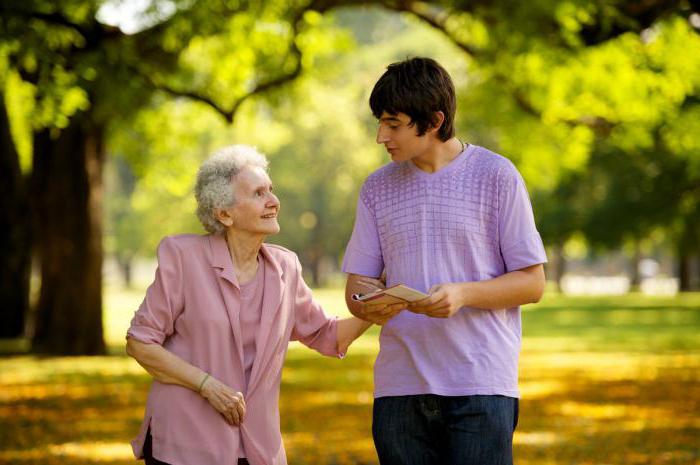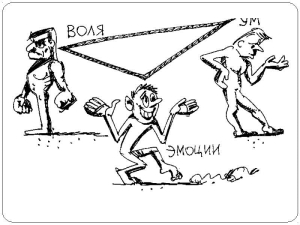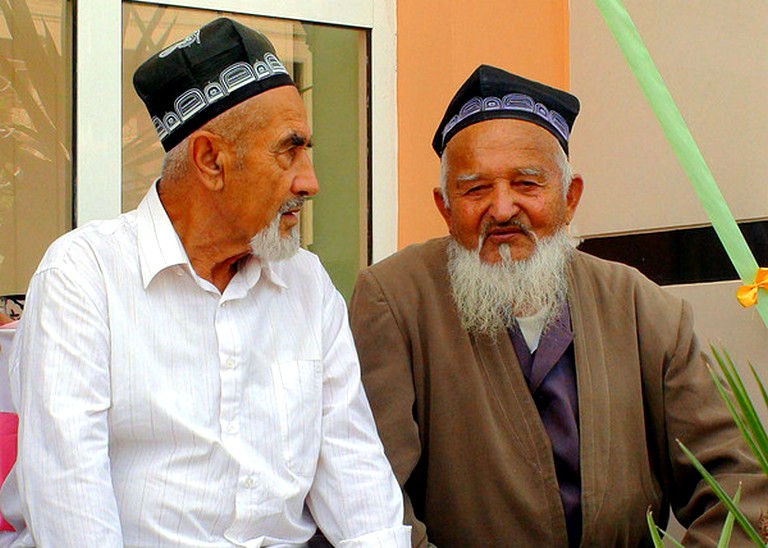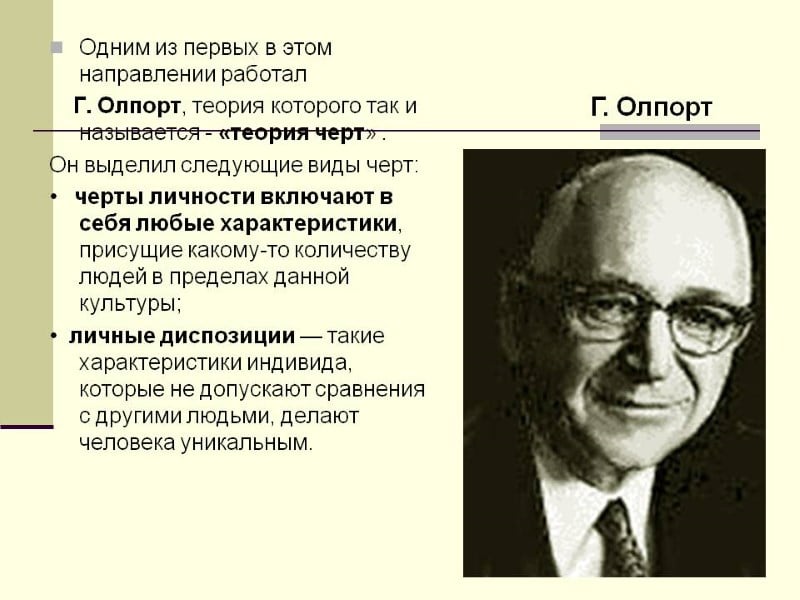Every person is endowed with a unique, personal character from birth. A child can inherit certain traits from his parents, some show them to a greater extent, while others are completely different from any of the family members. But character is not the behavior of parents projected onto the child; it is a more complex mental phenomenon. The list of positive ones is very long. In this article we will try to highlight the main character traits.
person?
Translated from Greek language the word "character" means "distinctive feature, sign." Depending on the type of their psychological organization, people find their soul mates, establish relationships, and build their entire lives. Human character is a unique set of mental characteristics, personality traits that play a decisive role in various aspects of a person’s life and are manifested through his activities.
To understand the character of an individual, it is necessary to analyze his actions en masse. Judgments about morality can be very subjective, because not every person acts as his heart tells him. However, it is possible to identify individual stable character traits by studying behavior for a long time. If a person makes the same decision in different situations, draws similar conclusions and demonstrates a similar reaction, then this indicates that he has one or another trait. For example, if someone is responsible, then his behavior both at work and at home will meet this criterion. If a person is cheerful by nature, a one-time manifestation of sadness against the background of general positive behavior will not become a separate character trait.

Character Formation
The process of character formation begins in early childhood, in the child’s first social contacts with his parents. For example, excessive love and care can later become the key to a stable characteristic of a person’s psyche and make him dependent or spoiled. That is why many parents are especially attentive to instilling positive character traits in their children. They get pets so that the baby can feel what responsibility is, assign him to do small chores around the house, teach him to put away his toys and explain that not all wishes and whims can be fulfilled.
The next stage is kindergarten and school. The child already has the basic character traits, but at this stage they can still be corrected: you can wean the little personality off greed and help get rid of excessive shyness. In the future, as a rule, the formation and change of character traits are possible only when working with a psychologist.

Character or temperament?
Very often these two concepts are confused with each other. Indeed, both character and temperament shape human behavior. But they have a fundamentally different nature. Character is a list of acquired mental properties, while temperament is of biological origin. Possessing the same temperament, people can have completely different characters.
There are 4 types of temperament: an impetuous and unbalanced choleric person, a leisurely and imperturbable phlegmatic person, an easy-going and optimistic sanguine person and an emotionally vulnerable melancholic person. At the same time, temperament can restrain certain character traits, and vice versa, character can compensate for temperament.
For example, a phlegmatic person with good feeling humor, will continue to be stingy with expressions of emotion, but this will not prevent him from demonstrating a sense of humor, laughing and having fun in the appropriate society.

List of positive human qualities
List of positive and negative qualities huge person. Initially, all definitions regarding the nature and essence of a person, his behavior are subjective. Society has established certain norms that allow us to determine how positive or negative a particular personality trait or action is. However, there are the highest qualities of a person that demonstrate his virtue and good intentions. Their list looks like this:
- altruism;
- reverence for elders;
- kindness;
- fulfillment of promises;
- moral;
- responsibility;
- loyalty;
- perseverance;
- moderation;
- responsiveness;
- honesty;
- sincerity;
- selflessness and others.
These qualities, along with their derivatives, constitute the nature of the true beauty of a person's character. They are laid down in the family; in the process of upbringing, children copy the behavior of their parents, and therefore a well-educated person will have all these highest qualities.

List of negative human qualities
The list of positive and negative qualities of a person can take a long time to form, since there are a lot of them. Attributing to a person the presence of a negative character quality based solely on his action or behavior will be completely wrong. You can't put labels on anyone, even the most well-mannered may actually believe that they are endowed with, say, greed or arrogance. However, if this behavior is a pattern, then the conclusion will be obvious.
The list of negative traits, as well as positive ones, is huge. The most basic and common ones look like this:
- lack of will;
- irresponsibility;
- harmfulness;
- greed;
- malice;
- deceit;
- hypocrisy;
- hatred;
- selfishness;
- intolerance;
- greed and others.
The presence of such character traits in a person is not a diagnosis; they can and should be dealt with even in adult, conscious age, and correct behavior.

Character traits that manifest themselves in relation to other people
We have compiled a list of positive and negative human qualities. Now we will talk about character traits that manifest themselves in relation to other people. The fact is that depending on in relation to whom or what a person performs an action or deed, a specific individual feature of him is revealed. In society, he can demonstrate the following qualities:
- communication skills;
- responsiveness;
- sensitivity to other people's moods;
- respect;
- arrogance;
- egocentrism;
- coarseness;
- isolation and others.
Of course, a lot depends on the conditions in which a person finds himself: even the most open and sociable person can experience problems communicating with a strict, closed and heartless person. But, as a rule, polite people endowed with positive qualities, easily adapt to society and suppress their negative traits.

Character traits manifested in work
Building a person’s career directly depends on the qualities of his character. Even the most talented and gifted people can fail because they are not responsible enough for their work and their talent. By doing so, they only harm themselves and do not give themselves the opportunity to reach their full potential.
Or, on the contrary, there are cases where the lack of talent was more than compensated for by special diligence in work. A responsible and careful person will always achieve success. Here is a list of the main character traits:
- hard work;
- responsibility;
- initiative;
- accuracy;
- sloppiness;
- laziness;
- negligence;
- passivity and others.
These two groups of character traits actively overlap with each other, since work activity and communication between people are inseparably linked.
Character traits manifested in relation to oneself
These are the traits that characterize his self-perception in relation to himself. They look like this:
- feelings of self-worth or superiority;
- honor;
- arrogance;
- self-criticism;
- egocentrism;
- self-adoration and others.
Character traits manifested in relation to things
Attitude to things does not affect the building of a person’s social connections, but demonstrates and reveals the best or unsightly qualities of his nature. These are traits such as:
- accuracy;
- thrift;
- scrupulousness;
- sloppiness and others.

Mentality, qualities of a Russian person
Mentality is a very subjective concept, and it is based on stereotypical thinking. However, it cannot be denied that certain traits are inherent in one or another nationality. Russian people are famous for their cordiality and hospitality, and cheerful disposition. The Russian soul throughout the world is considered mysterious and incomprehensible, since Russians are not distinguished by the rationality and logic of their actions, and are often influenced by mood.
Another feature of the Russian people is sentimentality. A Russian person instantly adopts the feelings of another and is always ready to share emotions with him and lend a helping hand. One cannot help but mention another trait - compassion. Historically, Russia has helped its neighbors at all borders of the country, and today only a heartless person will ignore the misfortune of another.
 As Victor Hugo used to say, a person has three characters: one is attributed to him by his environment, another he attributes to himself, and the third is real, objective.
As Victor Hugo used to say, a person has three characters: one is attributed to him by his environment, another he attributes to himself, and the third is real, objective.
There are more than five hundred human character traits, and not all of them are clearly positive or negative; much depends on the context.
Therefore, any personality that has collected certain qualities in individual proportions is unique.
A person’s character is a specific, unique combination of personal, ordered psychological traits, characteristics, and nuances. It is formed, however, throughout life and manifests itself during work and social interaction.
Soberly assessing and describing the character of the chosen person is not an easy task. After all, not all of its properties are demonstrated to the environment: some traits (good and bad) remain in the shadows. And we seem to ourselves to be somewhat different than what we see in the mirror.
Is it possible? Yes, there is a version that this is possible. Through long efforts and training, you are able to assign yourself the qualities you love, becoming a little better.
A person's character is manifested in actions, in social behavior. It is visible in a person’s attitude to work, to things, to other people and in her self-esteem. 
In addition, character qualities are divided into groups - “volitional”, “emotional”, “intellectual” and “social”.
We are not born with specific traits, but acquire them through the process of upbringing, education, exploration of the environment, and so on. The formation of character, of course, is also influenced by the genotype: the apple often falls extremely close to the apple tree.
At its core, character is close to temperament, but they are not the same thing.
In order to assess yourself and your role in society relatively soberly, psychologists advise writing down your positive, neutral and negative traits onto a piece of paper and analyze.
Try to do this too; you will find examples of character traits below.
Positive character traits (list)

Negative character traits (list)

At the same time, some qualities are difficult to classify as good or bad, and they cannot be called neutral. So, any mother wants her daughter to be shy, silent and bashful, but is this beneficial for the girl?
Again, a dreamy person may be cute, but completely unlucky because he always has his head in the clouds. An assertive individual looks stubborn to some, but obnoxious and pushy to others.
Is it bad to be gambling and carefree? How far has cunning gone from wisdom and resourcefulness? Do ambition, ambition, and determination lead to success or to loneliness? It will probably depend on the situation and context.
And what you want to be, you decide for yourself!
The relationship between character and other aspects of personality. Character formation in younger schoolchildren.
What is character
People have different attitudes towards the world around them - towards other people, towards nature, towards work, towards themselves. Various relationships are expressed in behavior, in human actions.
Personality properties that express a person’s attitude to reality always form some unique combination, representing not the sum of the individual characteristics of a given person, but a single whole, which is called character.
The word “character” translated from Greek means “trait”, “seal”, “sign”. A person’s character, as it were, leaves a certain imprint on his behavior, on relationships with other people, and is a certain sign of his personality.
Character- this is an individual combination of essential personality properties that express a person’s attitude to reality and are manifested in his behavior, in his actions. Character is a unique combination of psychological qualities, individual characteristics of a person; it is character that provides the basis for judging whether a person is a good person or not.
The writer S. Shurtakov writes in one of his books: “It happens like this. The man seems to be unprepossessing in appearance, and has a weak tongue, and in general is not useful among others in any way.
marked, but you get to know him better and even though you may not have time to eat a ton of salt, this person will remain in your heart for the rest of your life. You’ll remember him in a month, in a year, and you’ll feel happy: it’s good that somewhere there is such a wonderful person!”
It is known that there is a close connection between human behavior and his character. This is expressed in the fact that it is in behavior that the characteristics of a person’s character are manifested. A person always behaves in one way or another - commits certain actions, actions in relation to the world around us and, above all, in relation to people. Behavior reveals the characteristics of our character and temperament, our needs, tastes, habits, desires, degree of confidence or self-doubt, etc.
Words, movements, actions, individual actions and behavior as a whole make it possible to understand a person’s character; they seem to highlight his inner content, hidden from prying eyes. But, on the other hand, each character trait leads, under certain conditions, to the commission of certain actions, and leaves a stamp on all the actions, thoughts and feelings of a person. Popular wisdom says: “As is the character, so are the actions.” The most important measure, an indicator of character, is
actions And human behavior. A person can say anything to himself, but his actions show what he really is. The true essence of character is especially clearly manifested in difficult and critical situations, for example in misfortune, an accident or a fire. “A person is reflected in his actions,” wrote F. Schiller. “A person is nothing more than a series of his actions,” stated G. Hegel.
Human behavior is considered and assessed primarily from the point of view of his relationships with others - with individuals and with society as a whole. At the same time, not only the act itself is assessed, but the motive that prompted him to act this way and not otherwise. And this action is assessed from the point of view of whether it helps people in their lives and well-being, and whether it contributes to the movement of society forward. N.N. Miklouho-Maclay noted: “People must be valued according to the goals they set for themselves.”
Anyone who wants to understand a person begins by searching for the reasons for his actions, actions, and relationships. It is important to
delve into the motives (and this is not so easy!) that guide people when choosing this or that method of behavior, in other words, find out why the efforts are being made. Only by knowing the motive, knowing the inner motivation, can we correctly judge the actions of this or that person, for the characteristics of behavior always stem from a person’s true relationship to reality and, above all, to people, to society, to himself.
Knowing the basic properties of a person’s character, it is possible to understand and, with a certain probability, predict his behavior.
Character Traits
Character traits express a person’s attitude towards other people, towards himself, towards the world around him and his activities.
Character Traits- these are individual habitual forms of human behavior in appropriate situations in which his attitude to reality is realized.
There are a lot of character traits, or personality traits. Quite conventionally, they can be divided into two groups, which are closely related to each other, influence each other, but still reflect a person’s attitude to different aspects of life.
Group one- character traits that express beliefs and ideals, personality orientation. For example: collectivism (a person puts the interests of the team and the common cause above narrow personal interests) and egoism (a person cares primarily about personal well-being, for him there are only his personal needs and desires); sensitivity and rudeness; sociability, accuracy and irresponsibility, negligence; initiative, a sense of new things and inertia, conservatism; thrift and extravagance; helping others and predatory behavior towards people; modesty, self-criticism and arrogance; self-demandingness and arrogance; self-esteem and arrogance, etc.
These character traits, or personality traits, are moral qualities and act either as virtues or vices of a person. Our main virtue lies in caring for the people around us, their interests, and their peace of mind.
Everyone thinks a lot about happiness, wants to be happy and often forgets about the main thing - only when we bring happiness to other people do we ourselves feel happy. These are not empty words. Thinking only about yourself, about your own good, you can be satisfied, contented (complacent), calm, but never happy.
B.L. Pasternak wrote:
Life, too, is only a moment, Only the dissolution of ourselves in all others, as if as a gift to them.
Second group- strong-willed character traits. They are expressed in the ability and habit to consciously regulate one’s behavior, one’s activities in accordance with certain principles, and overcome obstacles on the way to the goal. Will is called the basis of character, its backbone. Speaking about someone “a person with character,” thereby emphasizing, first of all, the expression of strong-willed character traits: determination, determination, self-control, endurance, patience, discipline, courage, courage.
But these character traits are valuable only when they manifest themselves in a moral, educated person. It is important to know what goals a person strives for and what means he chooses to achieve them. Not only the goals, but also the means of activity must be honest and humane. The determination and perseverance of a dictator or careerist, the courage of a hooligan or fool cannot be positive qualities. Strong-willed traits and actions are not valuable in themselves, but only together with the moral orientation of the individual.
Character traits not only appear in actions, deeds, relationships, but are also formed in them. Thus, courage appears in the process of performing courageous actions, and it becomes a character trait only when such actions cease to be random episodes in a person’s life and turn into a habit for him. “You cannot raise a courageous person,” said A.S. Makarenko, - if you don’t put him in such conditions when he could show courage - it’s all the same
in what - in restraint, in a direct open word, some deprivation, in patience, in courage.
Democritus also stated: “ Good people become more from exercise than from nature.” And the Chinese proverb says:
If you sow an action, you will reap a habit; if you sow a habit, you will reap a character; if you sow a character, you will reap a destiny.
Each character trait does not appear in isolation from others, but is connected with them. Depending on this, the same character trait may manifest itself differently in different people. For example, a courageous act can be reasonable and reckless, moral and immoral. A trait such as courage includes not only the volitional sphere, but also the intellectual and emotional sphere. Courage is also a moral trait. The character of each person is a unique combination of various traits united in the human personality.
In the history of psychology, many attempts have been made to classify human characters or define character types. However, a satisfactory classification and typology of characters has not yet been created. Therefore, when characterizing a person, they usually point to one or two of the most prominent traits of his character. Some we call people of firm, strong character, others - modest, hardworking, others - kind, sociable, etc.
Character traits that manifest themselves in a person in his activities, in feelings, in speech, in relation to other people, to himself, acquire a positive or negative meaning depending on what goals the person is guided by in his life. life, what he lives for, how he comprehends his life and his actions.
There are people without a clearly defined character, people with an indeterminate character. About such people N.V. Go-gol wrote: “People... indefinite, neither this nor that, you don’t understand what kind of people they are, neither in the city of Bogdan, nor in the village of Seli-fan.” Our people also quite aptly say about such people and figures: “A so-so person - neither fish nor fowl”, “Neither a candle for God nor a poker for the devil.”
Character traits are acquired and fixed personality properties, physiological basis
character consists of features that have changed in the process of individual life nervous system.
I.P. Pavlov associated the changing type of the nervous system with the systematic functioning of the cerebral cortex and with a dynamic stereotype, which represents a coherent, balanced system of nervous processes.
A stereotype is the neuro-physiological basis of firmly established habitual personality traits, which include character traits.
To understand the neuro-physiological basis of character, the teachings of I.P. are of great importance. Pavlova about second signal system 1. The second signaling system is the physiological basis of thinking and speech, and at the same time it regulates human behavior. “In a normally developed person,” said I.P. Pavlov, “the second signaling system is the highest regulator of human behavior.” Of course, speaking of physiological basis character, one cannot understand the matter in such a way that all character traits are determined only by the characteristics of the nervous system. “The physiological basis of character, of course, does not and cannot include its content side, for example, social orientation, courage, fidelity to duty. The content side of character psychology has its source in social categories; By revealing this side, psychology is included in the number of social sciences” 2.
Formed under the influence of the environment, a person’s life experience, his upbringing, the character of each person is a unity of the individual and typical, arising under the influence of both socio-historical conditions (a certain socio-historical system, social environment) and individual conditions life and activity (human life path).
Not all features of a person can be considered traits of his character, but only significant and stable ones. For example, someone for whom this form of behavior is constant and typical is brave. Of course, he can also sometimes experience a feeling of fear, but you cannot call him a coward.
To get to know a person's character, it takes time and constant communication with him. It's difficult with a stranger
1 See: Pavlov I.P. Complete set of works. - M., 1951. - T. 3. - Book. 2. - pp. 334, 346.
communicate and deal primarily because you don’t know what to expect from him and what he expects from you. Knowing a person’s character, we can foresee and predict how he will behave in a given situation, how he will act under given circumstances, what he will do, what he will say and how.
Let's remember our friends, acquaintances, classmates, colleagues. In relation to almost each of them, you can foresee how they will react to this or that problem, how they will behave under certain circumstances, what decisions they will make...
A person's character can be definite or indefinite, integral or contradictory.
Definition of character depends on how clearly the dominant, core features are expressed. Purposeful character- this is the unity of thoughts, feelings and behavior, actions, deeds.
If a person’s individuality is devoid of internal certainty, his actions depend not so much on himself as on external circumstances, we talk about the “lack of character” of a person. Let's remember again folk proverbs: “Floats with the flow like a log”; “Not a person, but an armful of trifles.” We see that such people have never enjoyed respect among the people.
But “lack of character” is often only external: internally, for himself, a person strictly adheres to a certain line, but his line, so to speak, is fundamentally uncertain - he acts as it is beneficial: he can be heartless, cruel or kind in someone's eyes (the whole point is who these eyes belong to). Brave or cowardly, fight with passion either for this idea or for the opposite one.
Character, like personality itself, is a very complex phenomenon that is not frozen once and for all. It develops and is formed throughout a person’s life.
What character traits are the most attractive in a person? Probably everyone will agree that this is goodwill, a sense of dignity and justice, emotional sensitivity, ease of communication with people, optimism, dedication to one’s work, courage, integrity, and humor. K. Paustovsky wrote that the deepest, most intense human activity can and even should be accompanied by humor. The absence of humor indicates not only indifference to everything around, but also
known mental dullness. A cultured, well-mannered person will resolve an unexpected everyday conflict with humor rather than with annoyance. He (K. Paustovsky) noted: “A person must be smart, simple, fair, brave and kind.”
2.3. The relationship of character with other aspects of personality
Character is interconnected with all aspects of personality. The needs and interests of a person, forming the basis of his motivational sphere, also form his character. There are people for whom spiritual values are above all. But there are also those who have become slaves to things. The latter's spiritual and moral world becomes impoverished, and character traits such as stupidity, stinginess, greed, and envy arise. A person’s beliefs are manifested in such character traits as determination, optimism, demands on oneself and others; they make a person’s behavior fundamental. Worldview allows a person to correctly navigate social events, re-
regulate your behavior.
A person’s intellectual properties also leave a certain imprint on his character and give him originality. Sharpness or dullness, thoroughness or superficiality of the mind are intellectual properties that can become character traits.
Will determines determination, constancy, independence and purposefulness of character. Feelings in character show an emotional attitude towards people, the world and oneself. What a person loves or hates, what he remains indifferent to - all this manifests itself in his character, testifying to his attitude.
Character is closely related to temperament. Temperament influences the form of character manifestation. Thus, persistence in a choleric person is expressed in vigorous activity, in a phlegmatic person - in concentrated thinking.
Many character traits depend on temperament, such as balance of behavior, sociability, ease or difficulty of inclusion in new activities, expression of feelings. However, the type of temperament does not determine the essence of character: a phlegmatic person can be active and hardworking, and a sanguine person can be fussy and sterile.
It should be noted that there is a close interdependence between character and abilities. The development of abilities depends on such character traits as hard work and ability to work. At school, in middle and high schools educational institutions There are many pupils and students who, thanks to their abilities, grasp everything on the fly and do well. But in life, some of them do not live up to expectations, and mainly because they are not used to working seriously and in an organized manner, and persistently overcoming obstacles.
For the development of abilities, such character traits as self-criticism and self-demandingness are important. Such a character trait as modesty is also very important. Confidence in one’s exclusivity is often detrimental to one’s abilities, since in this case arrogance, self-admiration, and disdain for others are often formed. MM. Prishvin noted: “The greatest happiness is not to consider yourself special, but to be like other people.” A.I. Goethe emphasized: “He who does not think too much of himself is better than he thinks of himself.”
Psychologists call character a combination of personality traits that determine its behavior. You can make many lists with traits human characters. If two people are given the task of characterizing a third person, their lists will differ from each other. People don't think about how character influences their successes or failures. But, considering individual qualities, components of character, it is easy to understand how they affect the personality as a whole. A person’s character traits develop depending on the type of nervous activity, heredity, and upbringing environment. They are formed throughout life. The predominance of certain traits determines a person’s lifestyle.
Human character traits: list
Many psychologists divide all character traits into 4 main groups:
- Attitude towards others;
- Attitude towards yourself;
- Attitude to material values;
- Attitude to work.
Within each group, many qualities can be identified.
For example, a list of traits of the “attitude towards others” group:
- compassion;

- respect;
- reliability;
- flexibility;
- politeness;
- the ability to forgive;
- generosity;
- Gratitude;
- hospitality;
- justice;
- meekness;
- obedience;
- loyalty;

- sincerity;
- tolerance;
- truthfulness.
Character traits: list of the “attitude towards oneself” group:
- Caution;
- Contentment (understanding that true happiness does not depend on material conditions);
- Creation;
- Determination;

- Courage;
- Attentiveness;
- Endurance;
- Faith;
- Honor;
- Initiative;
- Self-control.
“Attitude towards material values” can be characterized by the following qualities:
- Thrift;
- Organization;
- Generosity;
- Wisdom.
“Attitude to work” demonstrates the following character traits:
- Hard work;
- Enthusiasm;
- Initiative;
- Punctuality;

Psychologists also classify character traits according to volitional, emotional and intellectual characteristics. Personality properties appear in combinations. For example, kindness, generosity and hospitality are usually characteristic of the same person. When characterizing a person, others highlight leading features or a set of features. By saying, “He's a kind and sincere guy,” or “She's lazy and disorganized,” people make a point. This doesn't mean that a lazy girl can't be kind and honest. It’s just that these traits do not predominate in her behavior.
Positive and negative character traits
For harmonious interaction in all four areas (with society, material values, work and oneself), a person must demonstrate his best qualities and minimize his worst. It is traditional to highlight “pros” and “cons” in personality characteristics. Each positive trait has its opposite. Even children easily name antonyms: “good - evil”, “hardworking - lazy”, etc. Determine unambiguously positive traits character is difficult. For example, for the professions of a teacher, salesperson, doctor, and waiter, such traits as goodwill, politeness, and tolerance are important. These qualities are not essential for the work of a programmer, accountant, or draftsman, who more require organization, punctuality, and responsibility.

There is a special concept of “professional character traits”. A clearly expressed quality suitable for a particular job helps a person achieve great professional success. At the same time, character is formed throughout life. The profession leaves its mark on the personality. Therefore, when they say “he is an exemplary policeman,” everyone understands that we are talking about a disciplined, courageous, and fair person. The expression “teacher from God” means a kind, wise, tolerant person. A person who dreams of a good career must develop the best qualities of his profession.
Good character traits can also be controversial in the everyday sense. Being generous is good, but if, because of generosity, a person gives away necessary property, his family and himself suffer. Obedience, for which a child is praised at home and in kindergarten, can be detrimental to him and form a weak-willed, passive personality.
Much simpler people understand negative character traits. We can say that these qualities are universal. Anger, envy, deceit, laziness, and greed are included in the list of mortal sins of Christians. But such properties are perceived negatively by people of all faiths. Muslims consider hypocrisy to be the worst sin. Hypocrites are equally disliked in all countries and among all peoples. Negative traits character of a person, if they act in combination, make the person very unattractive to others. Negative characters are quarrelsome neighbors, quarrelsome colleagues, evil relatives. These are the people who brought negative aspects his nature to the extreme.

Every person is to a certain extent deceitful, envious, and quick-tempered, but reasonable people try not to demonstrate their negative qualities to others. Negatives character can be adjusted. If others often say: “You are too rude,” “It’s difficult to communicate with you because of your arrogance,” you need to draw conclusions and start working on yourself. Psychologists advise writing down the negative qualities of your character on a piece of paper and working with each one individually. For example, you can remember among your friends a person who behaves exactly the opposite of you - not rude, but correct, not quick-tempered, but patient. You need to imagine yourself in a certain situation in the place of this person. At the same time, it is important to conjure up a real picture and real emotions. Such psycho-emotional training helps to reconfigure behavior and develop the desired quality in oneself.
Adaptation of character to society
Any culture, people and civilizations have certain frameworks of behavior. A person cannot exist outside of society. From childhood, the child has to adapt to the requirements of the environment - the family, kindergarten, schools. An adult is influenced by many social forces, from spouses to politics, religion, social class. A person’s character inevitably adapts to the demands of society. At the same time, many natural inclinations of the individual are put under pressure.

History knows many examples when brilliantly gifted people came into conflict with their environment due to the inability to lead the lifestyle that their nature required. At the same time, social norms allow a person to lead a safe life in the society around him. Such social character traits as loyalty, tolerance, and politeness allow painless contact with others. Rejection of social norms, primarily laws and morals, creates an asocial personality.
In modern psychology there is a term “national character traits”. Each nation develops certain common, typical behavior patterns among its representatives. For example:
- The peoples of Northern Europe and Americans are self-confident, honest, practical, persistent, and freedom-loving. The conservatism and subtle humor of the British, the punctuality of the Germans, and the taciturnity of the Scandinavians are well known.
- Residents of Southern Europe and Latin America are energetic, temperamental, emotional, cheerful, and sensual. A romantic Italian, a passionate Spanish woman, a charming French woman, restless Brazilians - there is a lot of reality in these stereotypes;

- Representatives of Eastern Europe (Russians, Ukrainians, Belarusians, Poles, Czechs) love constancy, are magnanimous, generous, selfless, sympathetic, prone to repentance and forgiveness. The widespread stereotype of the “mysterious Russian soul” has many foundations.
- The peoples of the East are much more respectful of parents and, in general, elders than Europeans. Eastern societies, much more than European ones, are characterized by hospitality, family honor, dignity, modesty, goodwill, and tolerance.
Traits of a social nature are inextricably linked with religious norms. The standards of Christian morality include the following qualities:
- Lack of envy;
- Chastity;
- Meekness;
- Generosity;
- Sociability;
- Compassion.
The influence of religious culture in the history of society is very strong. Even modern atheists in European countries consider the main Christian value - love for people - to be the best personal characteristic.

Islamic society creates the following traits in people:
- Respect for elders;
- Hospitality;
- Modesty;
- Courage;
- Humility.
Characteristics of men and women
A person’s gender plays a huge role in character formation. Not only gender characteristics develop certain qualities, but also public opinion. Standard character traits of a man:
- Leadership;
- Ability to protect;
- Inner strength;
- Reliability;
- Loyalty;

Women are guided more by intuition and feelings than by reason; they are more talkative, gentle in communication, and cunning. Of course, in most cases, women and men correspond to their gender characteristics. But it has not yet been studied in detail what influences the formation of gender traits more - nature or nurture. Often men and women have to fulfill the role that society imposes on them. For example, medieval society ordered a woman to be modest and obedient to her parents and husband. Modernity requires more independence from women.
The world is full of men and women who do not fit the accepted characteristics. Many girls have leadership and organizational skills. And, conversely, a large number of men are delicate, non-aggressive and emotional.
At what age is character formed?
Any mother who has raised several children will say that all her babies were completely different from infancy. Even infants react differently to food, bathing, and play. There are temperamental, noisy babies, and there are quiet and inactive ones. Heredity plays a role here, as well as natural temperament, which depends on physique, health and upbringing conditions.

A child's character traits develop under the influence, first of all, of the family. Responsible loving parents already at the age of three or four years they can see what type of temperament the child has by nature: choleric, sanguine, phlegmatic or melancholic. Depending on innate qualities, a positive, socially acceptable character can be formed. If there is no love and attention for children in a family, they are less likely to grow up friendly and hardworking. On the other hand, the examples of many outstanding politicians, writers, and artists who grew up in disadvantaged conditions confirm the importance of innate character traits and self-education.
Was last modified: August 2nd, 2016 by Elena Pogodaeva
When a new personality is born, it receives a unique character as a gift. Human nature can consist of traits inherited from parents, or it can manifest itself in a completely different, unexpected quality.
Nature not only determines behavioral reactions, it specifically influences the manner of communication, attitude towards others and oneself, and towards work. A person's character traits create a certain worldview in an individual.
A person’s behavioral reactions depend on character
These two definitions create confusion because they both play a role in shaping personality and behavior. In fact, character and temperament are heterogeneous:
- Character is formed from a list of certain acquired qualities of a person’s mental make-up.
- Temperament is a biological quality. Psychologists distinguish four types of it: choleric, melancholic, sanguine and phlegmatic.
Having the same temperament, individuals can have completely different characters. But temperament has an important influence on the development of nature - smoothing or exacerbating it. Also, human nature directly affects temperament.
What is character
Psychologists, speaking about character, mean a certain combination of individual traits that are persistent in their expression. These traits have the maximum impact on the behavioral line of the individual in diverse relationships:
- among people;
- in the work team;
- to one's own personality;
- to the surrounding reality;
- to physical and mental labor.
The word "character" is of Greek origin and means "to mint." This definition was introduced into everyday use by the natural scientist of Ancient Greece, the philosopher Theophrastus. Such a word really, very accurately defines the nature of an individual.
 Theophrastus was the first to coin the term "character"
Theophrastus was the first to coin the term "character" The character seems to be drawn as a unique drawing; it gives birth to a unique stamp, which is worn by the individual in a single copy.
To put it simply, character is a set, a combination of stable individual mental characteristics.
How to understand nature
To understand what kind of nature an individual has, you need to analyze all his actions. It is behavioral reactions that determine examples of character and characterize personality.
But such a judgment is often subjective. A person does not always react the way his intuition tells him. Actions are influenced by upbringing life experience, customs of the environment where the person lives.
But you can understand what kind of character a person has. By observing and analyzing the actions of a certain person for a long time, it is possible to identify individual, especially stable traits. If a person behaves the same way in completely different situations, showing similar reactions, makes the same decision, this indicates the presence of a certain nature.
Knowing which character traits are manifested and predominant in an individual, one can predict how he will manifest himself in a given situation.
Character and its traits
A character trait is an important part of a personality; it is a stable quality that determines the interaction between a person and the surrounding reality. This is the defining method of resolving emerging situations, therefore psychologists consider a personality trait as a predictable personal behavior.
 Variety of characters
Variety of characters A person acquires character traits throughout his entire life; individual traits of nature cannot be classified as innate and characterological. To analyze and assess a personality, a psychologist does not simply determine the totality individual characteristics, but also highlights their distinctive features.
It is character traits that are defined as primary in the study and compilation of psychological characteristics of a person.
But, when defining and assessing a person, studying behavioral traits in social terms, the psychologist also uses knowledge of the meaningful orientation of nature. It is defined in:
- strength-weakness;
- breadth-narrowness;
- static-dynamic;
- integrity-contradiction;
- integrity-fragmentation.
Such nuances constitute a general, complete characteristic of a particular person.
List of personality traits
Human nature is a complex combination of unique traits that forms a unique system. This order includes the most striking, stable personal qualities, revealed in gradations of human-society relationships:
| Relationship system | Inherent Traits of an Individual | |
| Pros | Cons | |
| To self | Fastidiousness | Condescension |
| Self-criticism | Narcissism | |
| Meekness | Boastfulness | |
| Altruism | Egocentrism | |
| To the people around you | Sociability | Closedness |
| Complacency | Callousness | |
| Sincerity | Deceit | |
| Justice | Injustice | |
| Community | Individualism | |
| Sensitivity | Callousness | |
| Courtesy | Shamelessness | |
| Back to work | Organization | Laxity |
| Mandatory | Cluelessness | |
| Performance | Sloppiness | |
| Enterprise | Inertia | |
| Hard work | Laziness | |
| To items | Economy | Wastefulness |
| Thoroughness | Negligence | |
| Neatness | Negligence | |
In addition to the character traits included by psychologists in the gradation of relationships (as a separate category), manifestations of nature in the moral, temperamental, cognitive and sthenic spheres were highlighted:
- moral: humanity, toughness, sincerity, good nature, patriotism, impartiality, responsiveness;
- temperamental: passion, sensuality, romance, liveliness, receptivity; passion, frivolity;
- intellectual (cognitive): analytical, flexible, inquisitive, resourceful, efficient, critical, thoughtful;
- sthenic (volitional): categoricalness, persistence, obstinacy, stubbornness, determination, timidity, courage, independence.
Many leading psychologists are inclined to believe that some personality traits should be divided into two categories:
- Productive (motivational). Such traits push a person to perform certain actions and actions. These are goal-traits.
- Instrumental. Giving personality during any activity individuality and method (manner) of action. These are methods-traits.
Gradation of character traits according to Allport
 Allport's theory
Allport's theory The famous American psychologist Gordon Allport, an expert and developer of gradations of an individual’s personal characteristics, divided personality traits into three classes:
Dominant. Such traits most clearly reveal the behavioral form: actions, activities of a certain person. These include: kindness, selfishness, greed, secrecy, gentleness, modesty, greed.
Ordinary. They manifest themselves equally in all numerous areas of human life. These are: humanity, honesty, generosity, arrogance, altruism, egocentrism, cordiality, openness.
Secondary. These nuances do not have a particular impact on behavioral reactions. These are not dominant behaviors. These include musicality, poetry, diligence, and diligence.
A strong relationship is formed between a person’s existing personality traits. This pattern forms the final character of the individual.
But any existing structure has its own hierarchy. The human warehouse was no exception. This nuance is traced in Allport's proposed gradation structure, where minor traits can be suppressed by dominant ones. But in order to predict an individual’s actions, it is necessary to focus on the entire set of personality traits.
What is typicality and individuality?
The manifestation of the nature of each person always reflects the individual and typical. This is a harmonious combination of personal qualities, because the typical serves as the basis for identifying the individual.
What is a typical character. When a person has a certain set of traits that are the same (common) for a specific group of people, such a warehouse is called typical. It is like a mirror, reflecting the accepted and habitual conditions of existence of a particular group.
Also, typical features depend on the warehouse (a certain type of nature). They are also a condition for the emergence of a behavioral type of character into the category of which a person is “recorded.”
Having understood exactly what characteristics are inherent in a given personality, a person can create an average (typical) psychological portrait and assign a certain type of temperament. For example:
| Positive | Negative |
| Choleric | |
| Activity | Incontinence |
| Energy | Hot temper |
| Sociability | Aggressiveness |
| Determination | Irritability |
| Initiative | Rudeness in communication |
| Impulsiveness | Unstable behavior |
| Phlegmatic person | |
| Perseverance | Low activity |
| Performance | Slowness |
| Calm | Inactivity |
| Consistency | Unsociability |
| Reliability | Individualism |
| Integrity | Laziness |
| Sanguine | |
| Sociability | Aversion to monotony |
| Activity | Superficiality |
| Goodwill | Lack of persistence |
| Adaptability | Poor perseverance |
| Cheerfulness | frivolity |
| Courage | Recklessness in actions |
| Resourcefulness | Inability to concentrate |
| Melancholic | |
| Sensitivity | Closedness |
| Impressionability | Low activity |
| Performance | Unsociability |
| Restraint | Vulnerability |
| Cordiality | Shyness |
| Accuracy | Poor performance |
Such typical character traits, corresponding to a certain temperament, are observed in each (to one degree or another) representative of the group.
Individual manifestation. Relationships between individuals always have an evaluative characteristic; they are manifested in a rich variety of behavioral reactions. The manifestation of an individual’s individual traits is greatly influenced by emerging circumstances, the formed worldview and a certain environment.
This characteristic is reflected in the vividness of the individual's various typical features. They vary in intensity and develop individually for each individual.
Some typical traits manifest themselves so powerfully in a person that they become not just individual, but unique.
In this case, typicality develops, by definition, into individuality. This personality classification helps to identify the negative characteristics of an individual that prevent them from expressing themselves and achieving a certain position in society.
By working on himself, analyzing and correcting shortcomings in his own character, each person creates the life he strives for.



